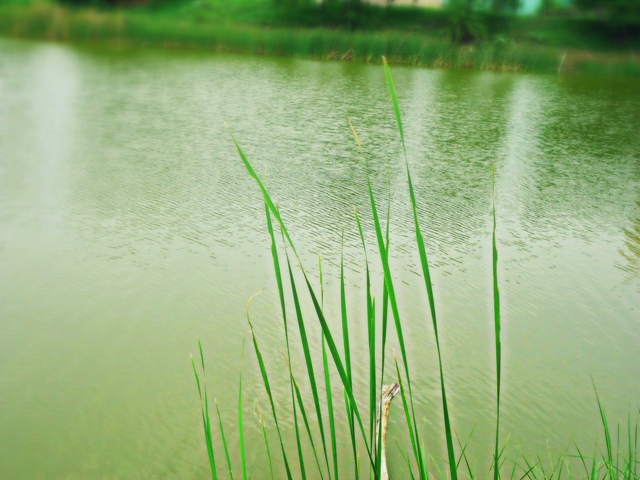Seitlholo Declares War on Invasive Weeds, Water Pollution at Vaalkop Dam
Seitlholo committed to personally overseeing the complete removal of aquatic weeds and announced the formation of a multi-stakeholder task force to develop and implement a recovery and management strategy for the dam.

- Country:
- South Africa
In a bold and urgent response to a growing ecological emergency, Deputy Minister of Water and Sanitation Sello Seitlholo has vowed to lead a comprehensive effort to eradicate invasive alien vegetation plaguing Vaalkop Dam in Rustenburg, North West. Speaking during a two-day oversight visit from 27–28 June 2025, the Deputy Minister declared that the infestation poses a serious threat to regional water security and must be addressed as part of a broader national effort to combat water pollution and environmental degradation.
Seitlholo committed to personally overseeing the complete removal of aquatic weeds and announced the formation of a multi-stakeholder task force to develop and implement a recovery and management strategy for the dam.
“I am taking personal responsibility to ensure that the infestation at Vaalkop Dam is eradicated,” he stated unequivocally.
Ecological Crisis at Vaalkop Dam: Invasive Species Threaten Water Supply
The invasive aquatic species—primarily water hyacinth (Eichhornia crassipes) and Salvinia minima—have spread rapidly across the surface of Vaalkop Dam, obstructing water flow, choking aquatic biodiversity, and severely hindering operations at the Vaalkop Water Treatment Works.
The dam plays a pivotal role in supplying water to both domestic and industrial users in the Rustenburg region. The infestation has compromised the dam’s water abstraction and treatment capacity, heightening risks of water shortages for communities and businesses.
Root Causes: Pollution and Nutrient Overload to Blame
Deputy Minister Seitlholo explained that the explosive growth of aquatic weeds is linked to multiple forms of upstream pollution:
-
Discharges from failing wastewater treatment plants,
-
Runoff from agricultural lands loaded with fertilizers,
-
Urban stormwater drainage carrying debris and contaminants,
-
Effluent from informal settlements, and
-
Mining-related pollution in the region.
These pollutants have caused an overload of nutrients—particularly nitrogen and phosphorus—in the dam, creating eutrophic conditions ideal for the proliferation of invasive plants.
“We are dealing with an ecological load made worse by bottom sediment nutrient recirculation, historically low water levels, and pre-existing seed banks,” said Seitlholo.
Call for National Crisis Declaration on Water Pollution
In a significant escalation, the Deputy Minister announced his intention to formally advocate for water pollution to be declared a national crisis, arguing that South Africa can no longer treat pollution as an isolated or localised concern.
“We cannot allow pollution and negligence to cripple our water systems any further. I will also be proposing that water pollution be declared a national crisis,” Seitlholo said.
This declaration, if formalised, would pave the way for more aggressive policy responses, emergency funding, and intergovernmental coordination to restore South Africa’s fragile water ecosystems.
Accountability for Municipal Failures: Stern Warning Issued
Seitlholo delivered a direct warning to municipalities that continue to flout environmental regulations and allow untreated or poorly treated sewage into rivers and dams.
“Municipalities that continue to pollute our rivers and dams with untreated waste are directly contributing to the destruction of our water resources. This negligence will not be tolerated.”
He confirmed that the Department of Water and Sanitation will intensify compliance monitoring and that “serious consequences” will follow in cases of confirmed wrongdoing, potentially including legal action, budgetary penalties, and public exposure.
Multi-Stakeholder Working Group: A Coordinated Recovery Plan
A central feature of the Deputy Minister’s plan is the creation of a multi-stakeholder working group, which will comprise:
-
Officials from the Department of Water and Sanitation
-
Representatives from Magalies Water
-
Affected local municipalities
-
Environmental scientists and ecologists
-
NGOs and community organisations
-
Experts in invasive species management and ecosystem rehabilitation
The group’s mandate is to:
-
Assess the scale and impact of the infestation
-
Develop and implement recovery plans for the dam and surrounding areas
-
Recommend both immediate and long-term interventions
-
Monitor progress and report regularly to the Deputy Minister’s office
Seitlholo emphasised that this initiative will serve as a pilot for broader national interventions aimed at addressing water quality challenges.
Seitlholo’s Reformist Agenda: Oversight with Impact
Since assuming office nearly a year ago, Seitlholo has become known for his hands-on approach and strong accountability messaging, conducting multiple oversight inspections and community engagements across the country. He has consistently called for improved service delivery, the professionalisation of water management institutions, and harsher penalties for polluters.
The Vaalkop Dam initiative reflects his commitment to a sustainable and resilient water sector, where ecological threats are met with decisive action rather than bureaucratic delay.
“This is not just about one dam. It’s about protecting our national water assets and securing our future,” he said.
Next Steps: National Strategy on Pollution and Invasive Species Expected
The Deputy Minister is expected to soon unveil a set of strategic national measures, including:
-
A national campaign to remove invasive aquatic vegetation from critical water bodies
-
Tougher pollution control standards and enforcement frameworks
-
Expanded investment in wastewater treatment infrastructure
-
Public education programmes to raise awareness of pollution and invasive species impacts
-
Partnerships with research institutions to enhance monitoring and response capacity
These actions will align with South Africa’s National Water and Sanitation Master Plan, reinforcing the country’s vision for equitable access to safe water and healthy ecosystems.
A Battle for the Future of South Africa’s Water Resources
The crisis at Vaalkop Dam is a microcosm of the broader challenges facing South Africa’s water sector—pollution, neglect, invasive species, and infrastructure strain. With the Deputy Minister taking a firm stance, the stage is set for renewed national attention to environmental stewardship and water security.
By coupling policy urgency with strong leadership and community engagement, Seitlholo’s intervention offers hope for reversing decades of damage and restoring the health of South Africa’s most vital natural resource.










